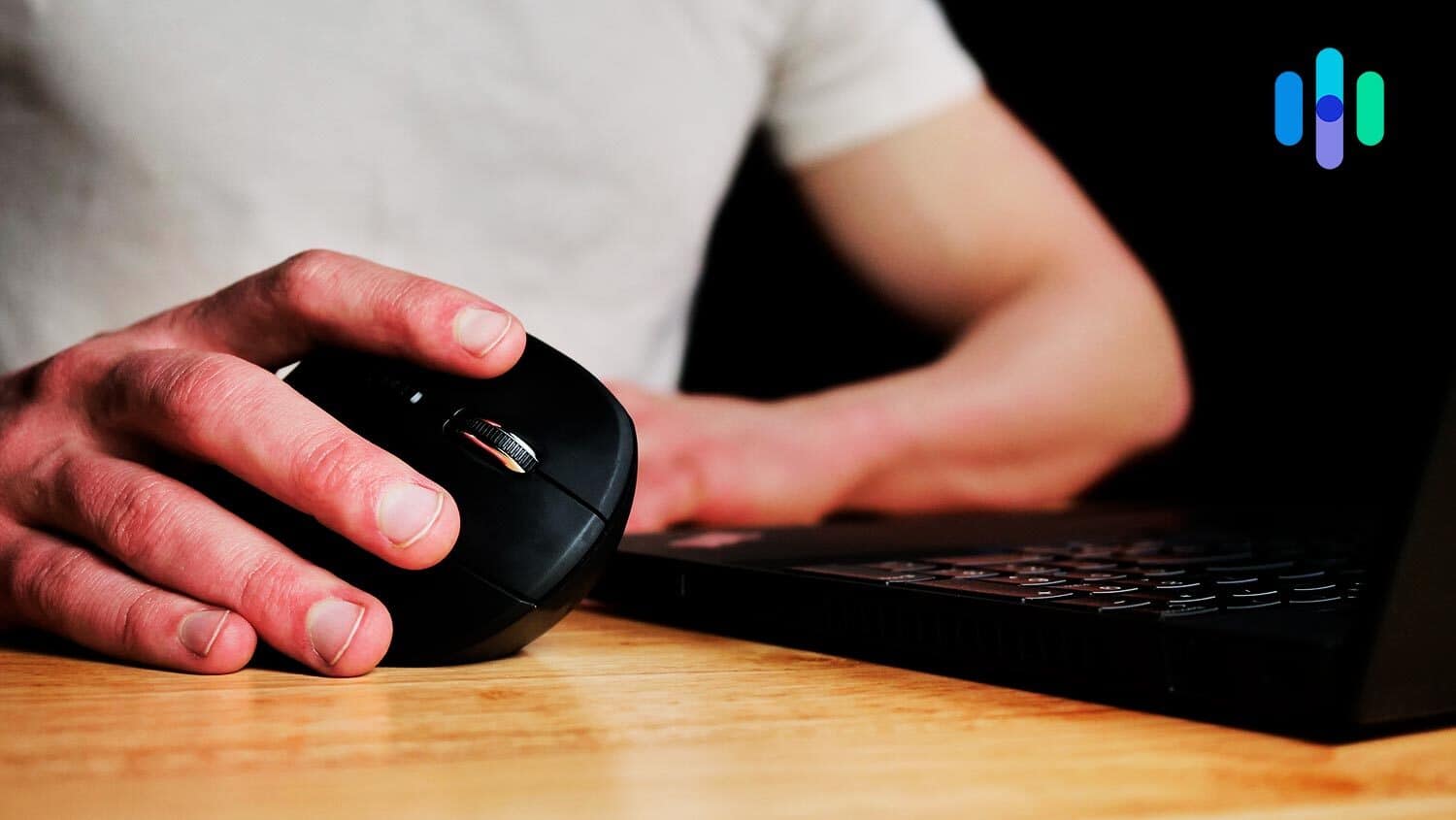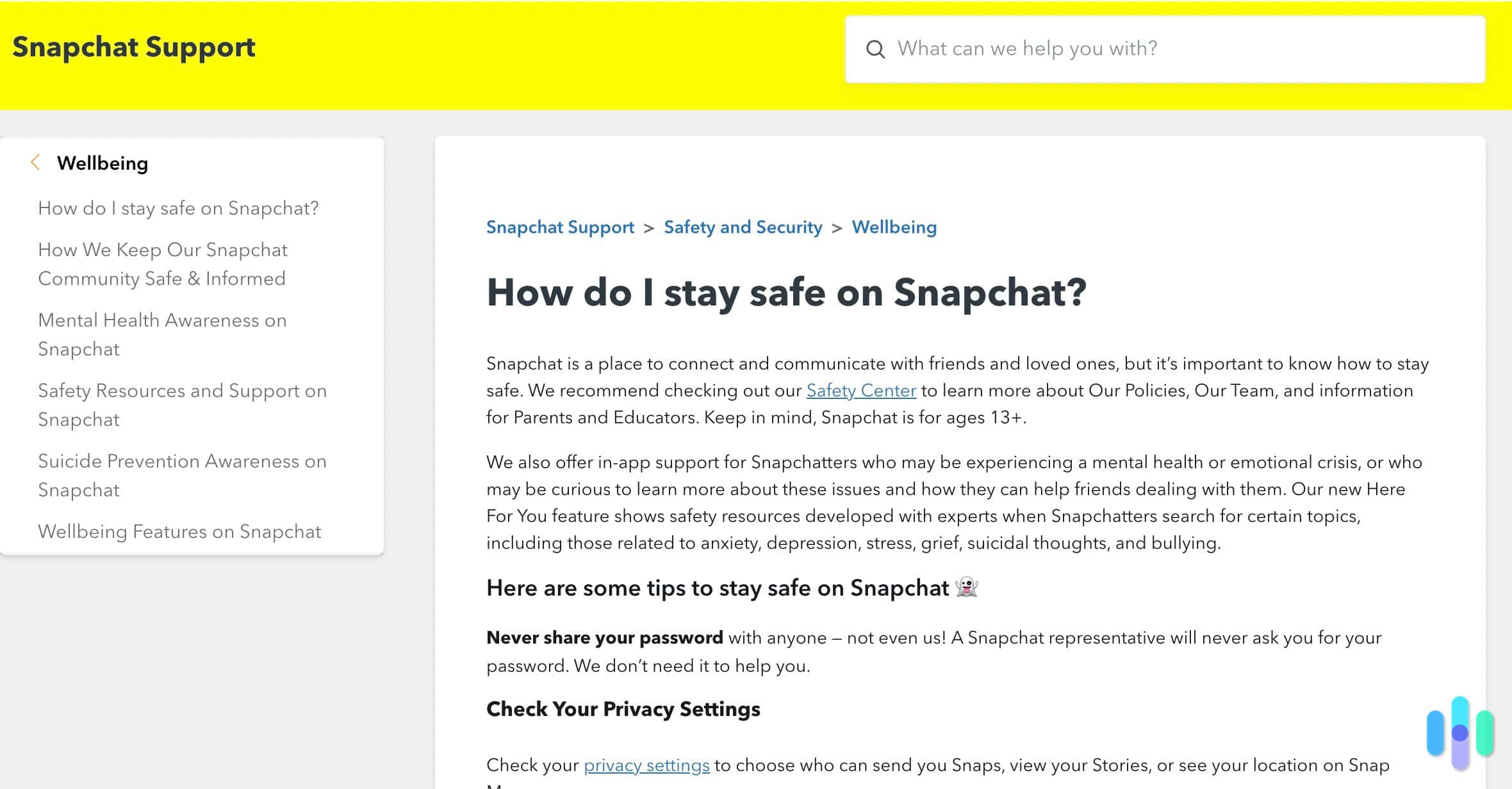Venmo is basically a peer-to-peer payment app with a social aspect. It lets you transfer funds, make cashless payments, or divvy up bills among you and your friends. At the same time, it adds ways to jazz up an otherwise boring experience. Footing the bill for a friend’s cappuccino purchase? Send the fund request with a coffee emoji as a playful gesture!
With its features, you can think of Venmo as a social media app and payment app in one. However, while it offers the best of both worlds, there’s a chance it can also offer the worst. Social media apps are known for being privacy risks, and payment apps are often targets of cybercriminals, hackers, and scammers. That makes Venmo doubly risky, and exactly the reason we’ve taken time to research and review how safe Venmo really is.
Over the past month, we’ve researched recent scams and risks for Venmo users. We figured out how they’re perpetrated and how to avoid them. And ultimately, we answer the question, is Venmo safe?
Is Venmo Safe? The Two Sides of the Same Coin
The answer is more complicated than we initially thought. On one hand, Venmo is safe because it has measures in place to protect your funds and privacy. It uses encryption to safeguard stored personal and financial information. It continuously upgrades its application programming interface (API) for secure facilitation of transactions. Even the fact that it lets users lock their apps with a personal identification number (PIN) or use multi-factor authentication shows that security is important to Venmo. Generally, we can say that your funds with Venmo are safe.
That being said, there are associated risks, and while these risks may not originate from the payment app itself, the consequences may directly affect Venmo users. We’re talking about scams and fraud committed through the app by cybercriminals.
Important Note: Venmo is a payment app, and as such, the risks that come with using it are similar to the risks that come with using any payment app. The fact that scammers use Venmo to trick people doesn’t necessarily make Venmo unsafe.
Venmo Scams to Watch Out For
Scams are, perhaps, the most common pitfalls of using payment apps such as Venmo. Scammers don’t need advanced knowledge about programming or hacking. They just need to convince their victims to do what they want them to do, and often in the most creative ways. Here are a few real-world examples of Venmo scams we found.
Fake listing scams
How it works: You find a product listing online, often through Craigslist, social media sites, or fake websites. The seller asks you to make your payment through Venmo before shipping the item off to you or to hold it for reservation. However, there is no real product, and the fake listing is just there to convince you to send money to the fake seller’s Venmo account. It is not possible to cancel or reverse payments made to an existing Venmo account1, so your money is as good as gone if you fall victim to a fake listing scam.
How to avoid: Only use Venmo the way it was intended to be used — to transfer and receive money from people you know and trust. Don’t make payments without first seeing the item in person; to be on the safe side, don’t transact with sellers who insist on online payments only.
Fake prize/cash reward
How it works: A scammer pretending to be from Venmo sends you a text or email telling you that you won a prize, or that you’ll be rewarded money if you take part in a survey. The included link will lead you to a phishing website, which will ask you to log into Venmo or give personal information. They’ll capture your login credentials to hack your Venmo account and steal your funds, or your personal information to commit identity theft.
How to avoid: Never enter your Venmo login information outside the Venmo app or website. When using the internet, always connect to a VPN that can detect and block malicious or phishing websites, such as NordVPN with its Threat Protection feature. You can learn more about it in our NordVPN review.
In-person scams
How it works: A person approaches you in public, asking if they could use your phone to make a quick phone call. Once in possession of your phone, they’ll open Venmo and transfer funds to their own account. This happened to a couple in Florida, who were approached by a young boy who claimed that his phone was dead and that he needed to find his friends. After making a call, the boy asked if he could open the Maps app, but without the couple’s knowledge, he opened Venmo instead and transferred almost $4,000 from the couple’s account.2
How to avoid: When someone asks to borrow your phone to make a call or send a text, dial the number or type in the message yourself. Also, lock your Venmo app with a PIN or face ID to stop anyone besides you from accessing it.
Venmo Privacy
We’ve learned two things so far: First, that Venmo is a secure way to transfer funds, and second, that scammers may take advantage of the app’s features to commit fraud. There’s one more thing worth discussing, though, and that has to do with how Venmo treats its users’ privacy.
Federal laws require payment apps such as Venmo to verify the identity of its users3, and that includes collecting personal information, such as legal names, addresses, birthdates, and Social Security numbers (SSN). The process might even call for you to provide a digital photo of your U.S. passport, driver’s license, SSN or ITIN assignment letter, or a tribal ID card.
Now, it’s worth pointing out that you can opt not to verify your identity, but that would severely limit your access to Venmo’s features. You won’t be able to do things like:
- Send more than $300 in any seven-day period
- Transfer more than $1,000 to your own bank account in a week
- Manage a group account
- Receive payments for goods and services through Venmo
- Hold a balance of funds on your Venmo account
FYI: Since you can’t hold a balance on your Venmo account without verifying your identity, you will be limited to transferring money to and from your credit card, debit card, or bank account.
Why Venmo Requires Identity Verification
Before we continue on the topic of privacy, let’s take a minute to discuss why Venmo requires identity verification, because as we said, Venmo can be quite complicated.
One reason, as stated earlier, is that it’s required by federal laws under the USA Patriot Act. It obliges financial institutions (payment apps included) to establish a Customer Identification Program to verify the identities of users making transactions. This is to prevent the movement of terrorist funds through financial apps, and also to detect and stop money laundering.
Venmo also requires identity verification to put a stop to scams and fraudulent actions within the app. If Venmo knows the identity of every user, scammers will be less inclined to commit fraud as the authorities will be able to track them down. If a scammer takes your money through a fake product listing scam, for example, you can report them to the authorities and Venmo will be able to provide their information.
Both are good reasons, right? Now for the downside.
The Downside of Identity Verification
The biggest downside of a company like Venmo having access to people’s personal information is that it increases the risk of data exposure through data breaches. According to a nonprofit organization that specializes in identity theft, there were 1,862 data breaches in 2021.4 The same report states that 83 percent of those data breaches involved sensitive information, such as Social Security numbers. We can conclude, then, that companies like Venmo that hold consumers’ personally identifiable information are prime targets of data breaches.
So far, though, Venmo hasn’t been involved in any data breach. We can take that as a good sign, but that doesn’t discount the possibility of a breach happening in the future. We don’t encourage you to go through the verification process, but we’re not discouraging you either.
Is Your Information Safe With Venmo?
Now, it all comes down to this: Can you trust Venmo with your personal information? We thoroughly went through Venmo’s privacy policy and found these key points regarding information storage and security:
- Venmo stores personal information on third-party servers located in the United States.
- The stored information is protected by physical, electronic, and procedural safeguards, although the exact measures weren’t discussed.
- Venmo also uses firewalls, encryption, and physical access controls to limit access to the data.
- If Venmo discovers a data breach, it will attempt to notify affected users so they can take appropriate steps to protect themselves.
Those seem to be good security practices, and according to Venmo, it complies with applicable U.S. federal and state regulations.
It’s worth pointing out, though, that PayPal, which owns Venmo, recently settled charges with the Federal Trade Commission.5 One of those charges involved Venmo’s security practices; particularly, that it misrepresented it had a “bank-grade security system” in place. The FTC alleged that until at least August 2014, Venmo didn’t have a written information security program and that until March 2015, Venmo didn’t notify users of password and email address changes on their accounts. As a result, the FTC required Venmo to submit itself to third-party compliance audits every two years for the next decade following the settlement.
Note: Aside from misrepresentation of its security system, the FTC also alleged that Venmo failed to fully disclose information to its customers regarding the process of transferring funds and the real extent to which users can control the privacy of their transactions.
How to Stay Safe When Using Venmo
For now, it seems that Venmo has cleaned up its act. Still, you might want to take extra precautions when using Venmo. Below are a few tips.
- Never share your login information: Since Venmo is linked to your bank account or credit card, only you should know your login information. Sharing an account with others is never a good practice when it comes to your digital safety and well-being.
- Use a strong password: Your password shouldn’t be easy to guess, so avoid using your birthday, anniversary, and spouse’s or children’s names, among other easy-to-guess combinations. Read here for more tips on how to create a strong password.
- Set your account to private: Unbeknownst to many, Venmo transactions are visible to the public by default. To set your account to private, go to Venmo’s Settings, then Privacy, and then select Private. That will keep your future transactions away from the public eye. For past transactions, on the same page, go to Past Transactions and select Change All To Private.
- Lock your Venmo app: You should also lock the app with a PIN to restrict access to it and turn on multi-factor authentication to prevent unauthorized login attempts.
- Transact only with trusted users and businesses: There’s no guarantee that you’ll get your funds back if someone scams you, so only transact with people and businesses you trust.
- Don’t hold large balances in your account: Only funds added to your account via direct deposit or remote check capture are Federal Deposit Insurance Corporation (FDIC)-insured, so Venmo is not a safe place to store large amounts of money. Your money is safer stored in your bank account.
- Use an identity theft protection service: We can’t all keep track of our personal information floating around on the internet, so it’s a good idea to enroll in an identity theft protection service. We recommend IdentityGuard because of its fast detection of possible identity theft through IBM Watson artificial intelligence. You can read our Identity Guard review for more information. Multiple users like families might also benefit from an Aura family plan.
Our Final Word
Venmo makes moving money around more fun and simple, but underneath it is a complex system that can affect your privacy, digital safety, personal data, and finances. It combines financial transactions with social media elements.
Venmo does implement some solid security measures like API updates, encryption, and multi-factor authentication. However, the best way to stay protected on this app is to remain vigilant against scams and fraudulent activity. Some of the more common tactics include tricking users into sending payments for non-existing products or services, phishing, and account takeovers.
A few things you can do to avoid being a victim of scams are to avoid oversharing personal information, never send money to unknown or unconfirmed sources, use the app’s security features, and only enter login credentials on the official Venmo app or website. Additionally, making your account private can help prevent unauthorized individuals from seeing your transaction history.
While Venmo is safe to use, you should always assume a defensive stance when using it. And here’s one final piece of advice: You should always use common sense. It sounds cliché, but that’s really one of the best things you can do to protect yourself from scams.
Venmo Safety FAQs
To wrap things up, we'll leave you with our answers to the most common Venmo questions.
-
Is Venmo safer than PayPal?
Generally, it’s the other way around. PayPal is safer than Venmo because it has more security measures in place to prevent fraudulent activities. That being said, Venmo is far more user-friendly. Sending money to family and friends through Venmo is much easier and less restrictive.
-
Can hackers hack my bank account linked to Venmo?
From a technical standpoint, your bank account linked to Venmo is safe. Your bank requires your authorization every time you move money through Venmo, so as long as your bank is secure, the likelihood of hacking is low. That being said, scammers could use social manipulation to trick you into giving them necessary information to gain control of your bank account, and they might even use Venmo to transfer money out of your account. It all comes down to being vigilant.
-
Can hackers hack my Venmo account?
Hacking is very much possible if hackers can guess your username and password. However, one easy fix is to activate two-factor authentication. Even if a hacker knows your username and password, they won’t be able to get into your account without your authorization from your registered phone number or email. You should also lock your Venmo app with a PIN or with face ID to secure it in case your phone gets stolen or lost.
-
Is Venmo regulated by the Federal Deposit Insurance Corporation?
Funds deposited to Venmo through direct deposit and remote check capture are regulated by the FDIC, and are thus covered by pass-through insurance coverage. Funds used to buy crypto are also covered by the same. However, balances acquired through other means, such as payments made to you, are not regulated, so they are not covered by the insurance.
-
Does Venmo charge a fee?
In most cases, Venmo does not charge any fees. However, there are cases when they do charge fees such as when you withdraw money instantly, pay people with a credit card, or for business customers.






